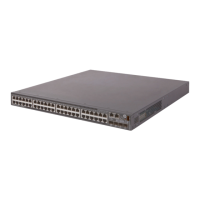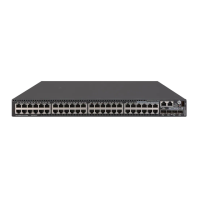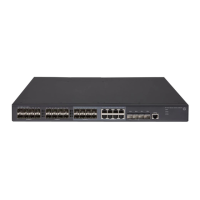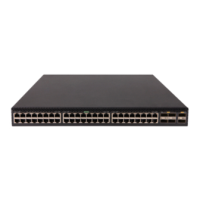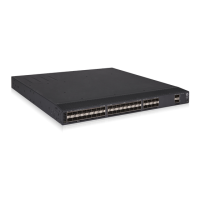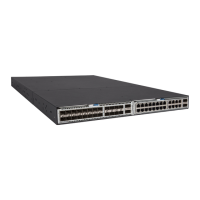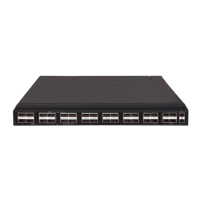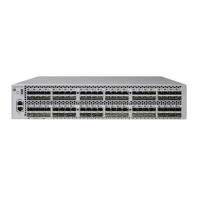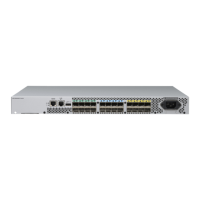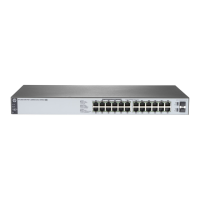15
Enabling an OpenFlow instance to perform QinQ
tagging for double-tagged packets passing an
extensibility flow table
IMPORTANT:
This feature is available in Release 1121 and later.
By default, a double-tagged packet becomes single-tagged after it passes an extensibility flow table.
Perform this task to allow double-tagged packets to keep double-tagged after the packets pass an
extensibility flow table.
To enable an OpenFlow instance to perform QinQ tagging for double-tagged packets passing an
extensibility flow table:
Step Command Remarks
1. Enter system view.
system-view
N/A
2. Enter OpenFlow instance
view.
openflow instance
instance-id
N/A
3. Enable the OpenFlow
instance to perform QinQ
tagging for double-tagged
packets passing an
extensibility flow table.
qinq-network enable
By default, a double-tagged
packet becomes single-tagged
after it passes an extensibility flow
table.
Disabling logging for successful flow table
modifications
This feature disables logging for successful flow table modifications. Logging for other events is not
affected.
To disable logging for successful flow table modifications:
Step Command Remarks
1. Enter system view.
system-view
N/A
2. Enter OpenFlow instance
view.
openflow instance
instance-id
N/A
3. Disable logging for
successful flow table
modifications.
flow-log disable
By default, logging for successful
flow table modifications is
enabled.
Refreshing all Layer 3 flow entries in the MAC-IP
flow table for an OpenFlow instance
Perform this task to obtain all Layer 3 flow entries in the MAC-IP flow table from the controller again
if the Layer 3 flow entries have been overwritten.
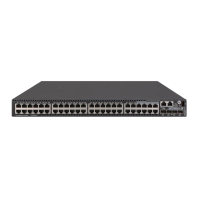
